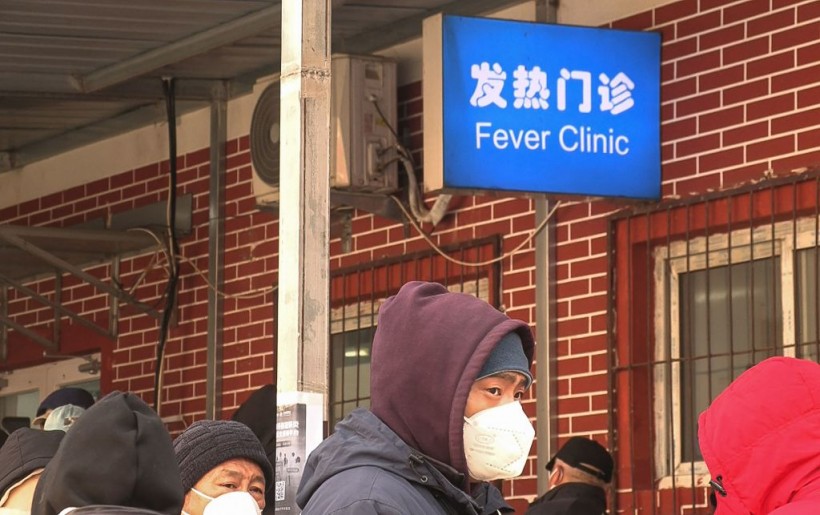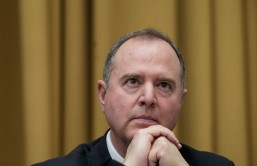
(Photo : YUXUAN ZHANG/AFPTV/AFP via Getty Images)
Sick individuals are reportedly having difficulty accessing medications for colds and flu from drug stores, as a fresh COVID-19 surge is feared in China.
Chinese health authorities have reduced their daily COVID-19 report as a result of a substantial reduction in PCR testing since the government relaxed its stringent measures to curb the spread of the deadly virus.
China's National Health Commission reported on its website on Wednesday that the number of daily COVID-19 Cases in China with no symptoms has ceased, according to Al Jazeera.
In most cases, the great majority of new infections have been among asymptomatic people, but it is "impossible" to precisely understand the real quantity of asymptomatic infected individuals, the report noted. Numbers are only being reported for verified instances found in publicly available testing centers under China COVID-19 policy.
As China begins to loosen its "zero-COVID" policy, this presents a significant obstacle. It has become more difficult to estimate the actual number of cases since mass-PCR testing is no longer required and patients with minor symptoms are let to recover at home rather than at one of the medical centers that were infamous for being overcrowded and unhygienic.
Lines are building at fever clinics, which have risen in number from 94 to 303, and at pharmacies where it is more difficult to get cold and flu drugs. The streets of Beijing have become uncomfortably silent in the current China COVID-19 policy.
Despite claims from officials that they were obtaining millions of COVID-19 antigen rapid test kits for Beijing drug stores, the products were still difficult to acquire.
There has been an effort to increase vaccination rates among the elderly, but on Tuesday, neither of the two centers set up in Beijing to provide immunizations had any patients in them. Despite expectations of a major epidemic, patient numbers did not increase in COVID-19 Cases in China.
Supplies Shortage Reported
A large portion of the population is worried, and there is a consequently high demand for medical goods due to the ever-increasing number of sufferers. The issue is that there is insufficient supply to meet demand, the South China Morning Post reported.
Read Also: US Crime: More and More Criminals Are Using Apple AirTags for Car Theft, Stalking
Wang Houting, deputy director of the Beijing Municipal Medical Products Administration, said on Monday that the government was tackling the problem by mapping shortages, deploying additional stock, and organizing e-commerce platforms to acquire medications from abroad.
Certain drugs connected to COVID-19 that had previously sold out, such as Lianhua Qingwen (a traditional Chinese drug used to alleviate flu symptoms), are now again accessible thanks to involvement by the Beijing municipal administration. However, It is still difficult to get anti-fever medications.
Beijing's initial jubilation over legislative revisions that would enable those living with COVID-19 Cases in China to do so has rapidly given way to a growing anxiety about rising infections due to a lack of "herd immunity" and poor vaccination numbers among the seniors.
WHO Closely Monitors China COVID-19 Situation
Senior epidemiologist Maria Van Kerkhove of the World Health Organization claimed that there were open contacts and that the UN agency was giving China technical guidance, per AP News.
China Meheco Group Co Ltd. said on Wednesday that it will import and market Pfizer's oral COVID-19 medication Paxlovid amid the China COVID-19 policy. This is one of the first big disclosed arrangements in which Western pharma would provide China with COVID-19 medicines.
WHO head Tedros Adhanom Ghebreyesus said he was optimistic that the COVID-19 pandemic, which has claimed the lives of more than 6.6 million people since it began in Wuhan, China, three years ago, will no longer be a worldwide emergency in 2023.
Related Article: China Urges Use of Vaccines Amid Rise in COVID-19 Cases as Easing of Restrictions Becomes Messy








